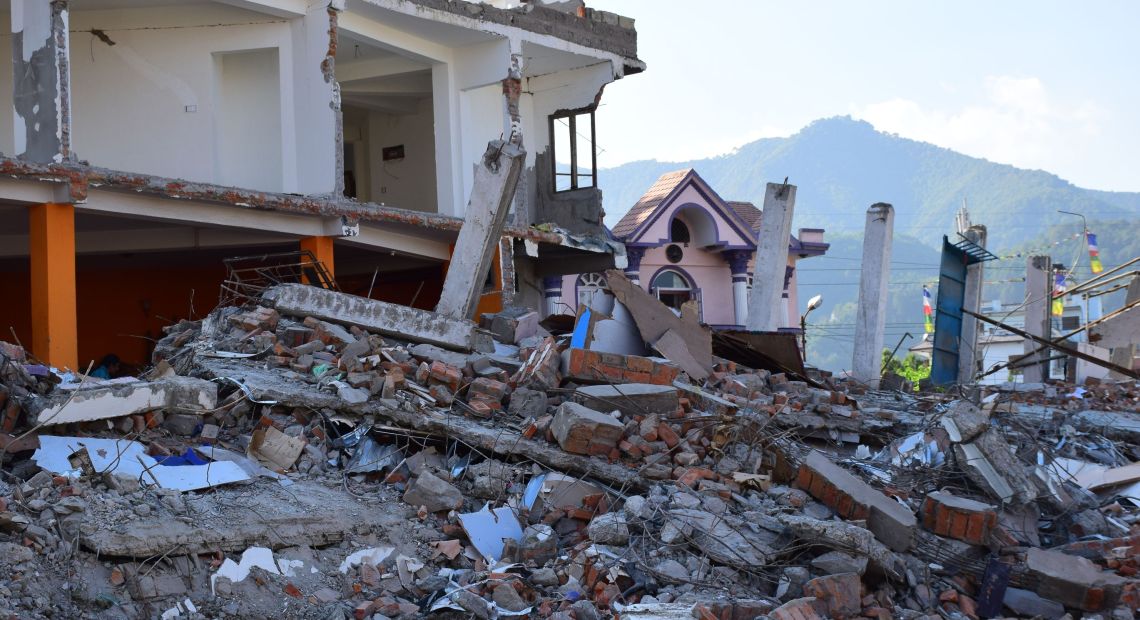BUILDING COLLAPSE: Still no end in sight to sorrow, tears and blood

Like over a dozen families that reportedly lost their loved ones when a four-storey building collapsed on Massey street, Lagos Island in Lagos state on July 25, 2017, agony enveloped Egwumi Chinenye as the remains of her last born were priced out from the rubbles; tears flowed like a burst pipe. The gory sight of shattered limbs and skulls caused many to recoil in shock.
According to Ngozi, she is consoled by the fact that at least, one of her sons did come out unscratched by the grace of God, even though her 12-year-old boy was crushed to death.
In what appears to be an unending tale of sorrow and tears, on August 13, 2017, another building collapse
cut short the lives of four people in Imo state, which included two babies.
Before the aforementioned incidents, the dust raised by yet another building collapse had barely settled where 30-year-old Basirat was not so lucky, as a building collapse at Meran, Abule Egba area of Agbado–Oke Local Council Development Area, dispatched her and her two-year-old daughter to their early graves.
But observers wonder why building collapse has become a recurring decimal that has continued to yield avoidable death certificates despite what experts have concluded were preventable accidents.
According to a recent study conducted by renowned quantity surveyor, Prof Philip Lawal, out of 64 incidents of building collapse that took place throughout the country from 2007 till July 2016, Lagos state has the highest number of building collapse cases and highest number of casualties as well.
The academic estimated that, out of a total of 178 casualties and 226 injuries recorded in as many as 33 cases of
building collapse, Lagos, the City of Excellence, took the lead.
A second study by a Nigerian national newspaper, revealed that at least 272 people have been killed in 43 incidents of building collapse in Nigeria in the last 17 months.
Why buildings continue to collapse, experts in the industry say, is enough blame to go round.
From contractors to government agencies, government agencies to house owners, all are culpable in a way, the experts said.
An architect, Mrs Chidinma Umeaku-Fofah, bares her mind on the issue. “Building collapse in Nigeria can be attributed to a lot of factors, ranging from quack building contractors to substandard building materials. A
certain percentage of cement and sand is mixed to get a certain number of building blocks.
“Now, in order to maximise profit, people cut corners; and when they do, what do you get? You have building crumble whilst still undergoing construction,” she said and went on to indict the building sector:
“Our building sector is unregulated, period. I have seen cases where builders defy the original building plan approved in favour of that which will accommodate more tenants all because their clients want to maximise profit. I can go on and on. It is appalling how things have degenerated in this country.”
The architect recalled cases where government agencies had sealed off buildings due to poor quality of building materials. “But some contractors have defied these orders. Some go as far as bribing these government
agencies to enable them to continue their work.’’
It’s cheaper to engage professionals – COREN
The President of Council for the Regulation of Engineering in Nigeria, (COREN), Engr. Kashim Ali, has charged Nigerians to engage only professionals for building projects. He added that it is cheaper on
the long run.
Kashim also called for capital punishment as a measure to deter people directly or indirectly responsible for building collapse.
“Quacks are not engineers. If you drive your car and somebody loses his life, you will be held responsible. But people engage those who are not professionals. They are killing people, they should be killed.
“What causes collapse is a failure of structural practice. If you don’t engage a qualified structural engineer, the
building is an accident waiting to happen.
“Everywhere in the world, they follow the right procedure, but our people don’t want to spend money. At the end of the day, you even spend less when you engage the services of professionals.”
“For instance,” he stressed, “There is nothing voodoo about engineering. If you don’t know it, you don’t know it. If you fail to invite the right people, something will give in.’’
Whistle blowing
For the Publicity Secretary of Building Collapse Prevention Guild, Mr. Akinola George, control is key.
“We are working with Standards Organisation of Nigeria and the Lagos State Building Control Agency because we believe control is key. Whistle blowing is one of the strategies we have adopted to check building collapse. Anyone that notices tell tale signs that a building is likely to collapse can call this number – 08034253639 and alert us.”
How to know a building may collapse
A structural engineer, Engr Kunle Arowolo, says deaths are avoidable if signs that a building may collapse are detected early. He pointed out that major cracks in the wall, which could be caused by thermal movement, could eventually lead to collapse of a building.
“A crack in the wall of a building shows the structure cannot accommodate the load to which it is subjected.
Deformed siding could also make a building collapse,” Arowolo said.
He added that siding can be found inside and outside buildings that are well built. “It protects buildings from moisture and elements. When it’s not kept in good condition, it can weaken foundational structures and eventually lead to building collapse,” he said.
Another thing to look out for is “creaking and popping sound”. According to the engineer, “When strong winds blow and strange sounds and cracks are heard coming from the building, it’s a sure sign that must not be ignored,” he said.
Stakeholders – which include all citizens in Nigeria – are uncomfortable with the trend, especially because no clear cut solution is anywhere in sight to stem these avoidable deaths staring us in the face.
Ladesope Ladelokun








